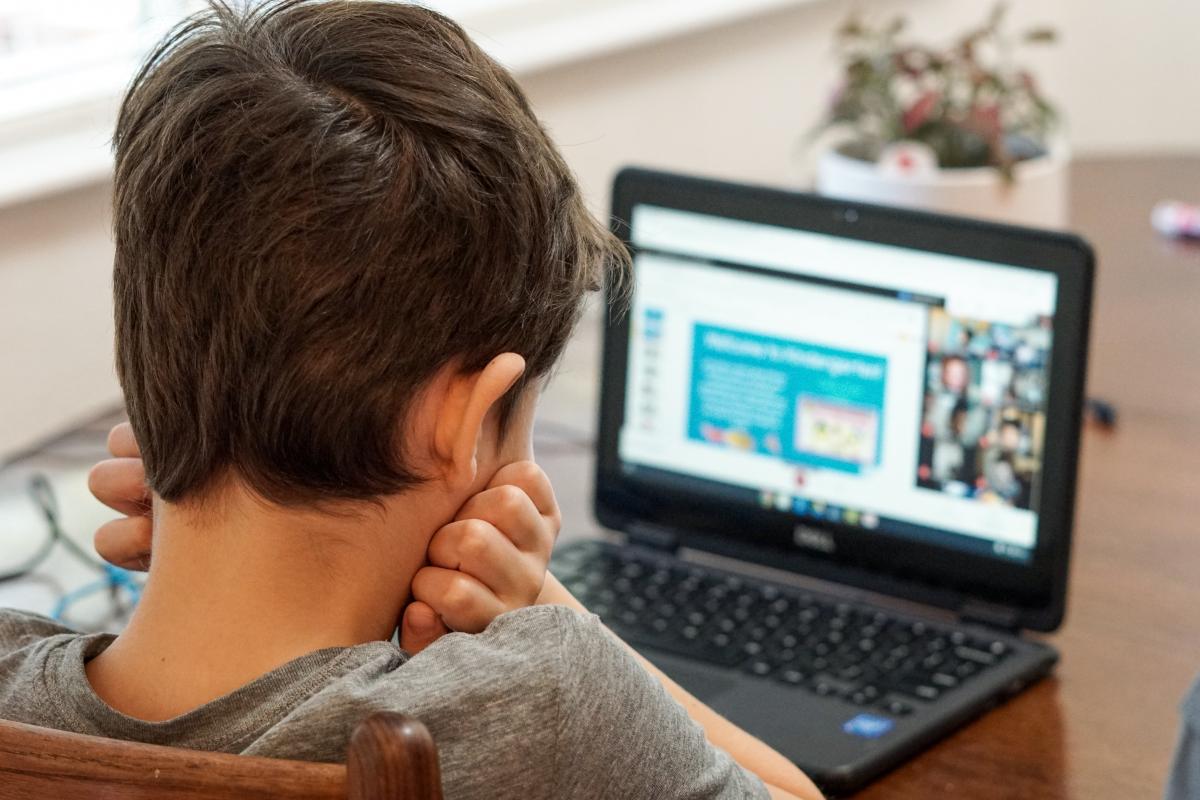While some parents are imploring school systems to return students to classrooms, experts argue that the sudden disruption to traditional schooling provides teachers a unique opportunity to educate in new ways. But it will require time, expansion of broadband internet and long-term investment in professional development for educators.
Trying to recreate the old model of learning, which was developed in the late 19th century, into remote instruction “is like cramming a square peg into a round hole. It’s just not compatible,” Ryan Schaaf, an assistant professor at Notre Dame of Maryland University, told state lawmakers during a virtual education briefing Thursday afternoon.
The status quo of teaching is not working for all types of students, so teachers should take this time to learn how to use technology to meet the needs of diverse learners, said Monica Simonsen, the education program director of University of Maryland Global Campus.
“As someone who has taught online for a decade, I really believe that there are some things I can do better online than I could do in person,” Simonsen said. “This is an opportunity to rethink things.”
A physics teacher in Somerset County could help address a teacher shortage in another district by Zooming into their classroom, Simonsen said. To resolve overcrowding in classrooms, teachers could broadcast lectures to students who have reliable Internet at home.
There are also digital strategies to monitor student engagement beyond attendance, such as tracking how often students turn in assignments late, which will allow teachers to make better, data-informed instructional decisions, Simonsen said. These are the types of skills that those in teacher prep programs are learning right now, she continued.
“Distance learning is not a packet of worksheets, it’s not meant to be a digital babysitter. Distance learning is not a time to look for pre-produced or pre-canned learning solutions built by…Pearson or Kaplan or other corporate entities,” Schaaf said. Online learning can be very successful if only educators receive enough time and training to adapt, he emphasized.
But it will take a lot of time to master online learning, as there are 200,000 Maryland homes that lack Internet access right now, according to Allison Socol, a policy director at the Education Trust, a national nonprofit advocacy group that works to close opportunity gaps for students of color and students from low-income families. More than half of students in three Maryland school districts — Baltimore City and Garrett and Somerset counties — do not have Internet access, according to a survey by the Maryland Department of Education conducted in May.
The state should partner with Internet providers to expand connectivity for students and teachers, provide grants to help certain school districts facilitate virtual learning and require school systems to collect consistent data about student attendance and engagement on remote, hybrid and in-person learning models, Socol said.
“It’s very hard to solve problems if we don’t know they exist, and right now we actually know very little about what’s going on with remote learning across our state,” Socol said.
Some education stakeholders are also worried that distance learning cannot adequately replace the social learning that children usually experience through in-person interaction.
“Technology-based learning is neither socially nor developmentally appropriate for children of a young age,” said Timothy Stock, a parent of children in 4th and 6th grade.
Despite having advantages such as reliable Internet and working space, “the first and most heart-rending gap that virtual education represents is a lack of social development and an inability to recreate the social aspects of learning,” Stock said. He said his children “learn most from their peers and from the social process of engagement.”
“These are future learners whose experience in school is increasingly one of isolation, frustration, and endlessly confusing interfaces and logins,” Stock said.
The tug of war between returning students to classrooms and respecting teachers’ concerns about their health has continued to play out across the country, including in Maryland.
Del. April R. Rose (R-Carroll) stressed the importance of having teachers in classrooms, especially for special needs students. Over 300 teachers have already put in for leave, she said.
“I have great respect for the teaching profession…but we’re in a situation where we have kids that need to be taught, we’ve been dealing with this since March,” she said. “Whatever ways we can encourage teachers to come back and teach…we need to not make this some sort of battle because we’ve got kids who are really suffering.”
Del. Eric D. Ebersole (D-Howard), a retired high school math teacher, noted that teachers cannot be held to the same expectations as health care professionals. “It’s a false equivalence because the situation in the school is not nearly as controlled as it is in a hospital or doctor setting, and so we really have to honor the teachers and their safety,” he said.
By Elizabeth Shwe


